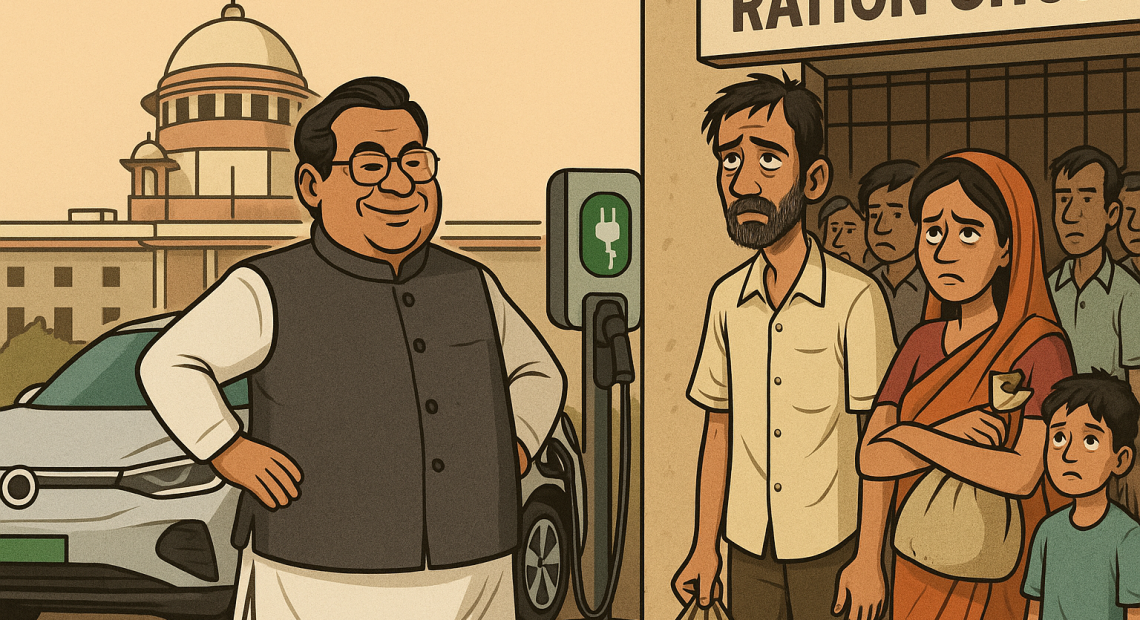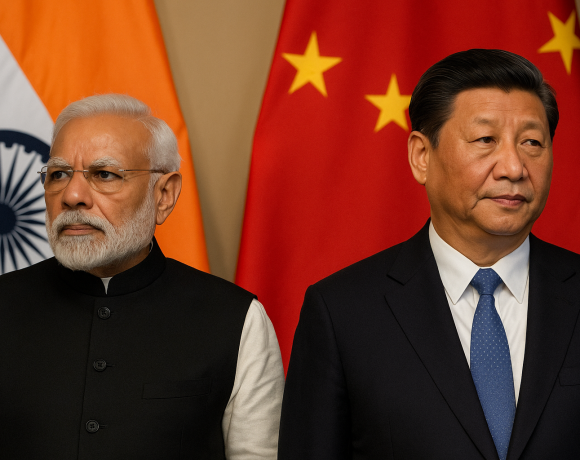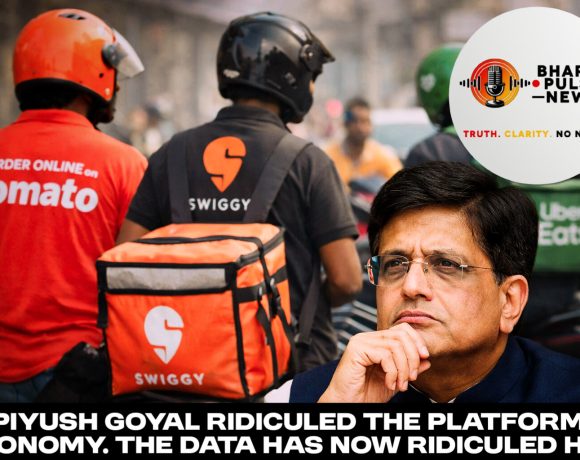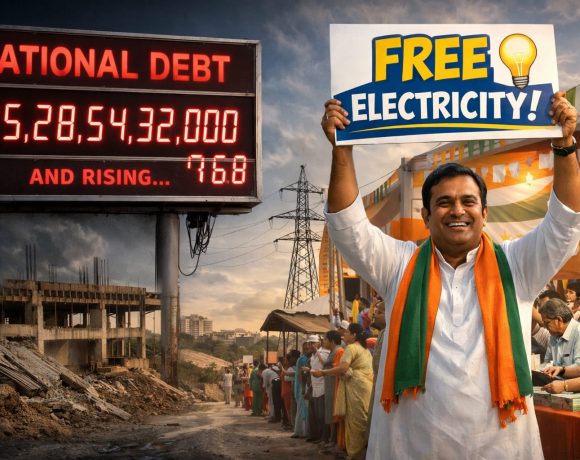
Let Netas Practice the Policies They Frame: Live Like the Middle Class
There is a saying that those who make the rules must first live by them. In India, the exact opposite has become our reality. Our MPs, MLAs, judges, police officers, and civil servants write policies that weigh down the backs of ordinary families while they themselves remain untouched by the consequences. The middle class is told to sacrifice, to adjust, to be patient — while leaders glide through life in taxpayer-funded comfort. They live in sprawling government bungalows, enjoy free flights, travel in convoys of SUVs, send their children to private or foreign schools, and check into private hospitals or even fly abroad for treatment. Yet, they are the ones who decide that citizens must stand in ration lines, pay through the nose for fuel, or send their children into broken schools. This gap is not just unfair — it is the very definition of hypocrisy.
Every new policy is advertised as reform, a bold vision for the future, or a step towards sustainability. But ask any middle-class family, and they will tell you it feels more like an experiment conducted at their expense. Whether it is banning old vehicles, forcing ethanol-blended petrol, demanding EV infrastructure in housing societies, or reshaping education and healthcare systems, it is always the ordinary citizen who shoulders the burden. The ones writing these rules remain insulated, cocooned in the comforts paid for by the very people they burden. It’s time we asked the obvious: why shouldn’t our leaders be the first to live by the policies they frame?
Ethanol Blending? Fine. But Drink It Themselves First.
The government now mandates E20 ethanol-blended petrol at most pumps. Drivers report loss in mileage, engine problems, and compatibility issues with older cars. Great in theory, but when ministers get into their official vehicles, are they filled with E20? Do they pay the difference or deal with repairs? The truth is most government fleets still run on diesel SUVs, untouched by the policy they impose on petrol car owners. If the government believes in ethanol so much, let their convoys run on it first — or better yet, shift every government vehicle to EVs and lead by example.
Scrapping Old Vehicles — That Only Bites the Weak.
Delhi’s vehicle scrappage policy banning older petrol and diesel cars hit the working class hard. Cars that were maintained well were seized or banned, while official convoys still run on SUVs older than the ban itself. Families lost lifelines, while leaders faced no such disruption. If scrappage is essential, let ministers scrap their own cars first.
Make EV Charging Mandatory in Government Housing — Then Dare the Rest.
Apartment owners across India are told to prepare for mandatory EV charging facilities. Yet, government colonies and MP flats remain untouched by this urgency. Why not start with ministerial homes and IAS quarters? Make them wait at public charging points during a power cut, and then tell the rest of us how “smooth” the EV transition really is.
Education: Teach Them in the Government School They Trash.
The much-touted National Education Policy (NEP) promises transformation but has drawn criticism for diluting academic depth, overburdening teachers, and widening inequality. Middle-class parents pay through the nose for private schools because government schools collapse under neglect. Meanwhile, politicians pack their children off to elite academies abroad. If NEP is so revolutionary, let ministers’ children sit in government classrooms first.
Healthcare: Their Treatment Abroad, Ours in Broken Wards.
Ayushman Bharat was sold as universal healthcare, yet it hasn’t reduced out-of-pocket expenses. Fraudulent claims and underfunded hospitals plague the scheme, while leaders continue to check into private suites or fly abroad for treatment. If government hospitals are good enough for us, make them good enough for netas too.
Ration Lines for the Rulers.
Ration shops are a symbol of survival for millions, but no leader has ever stood in those lines. Yet they never miss a chance to take credit for these welfare schemes. If ration shops are proof of their success, let netas experience them firsthand.
Lack of Empathy in Their Own Words.
And when citizens dare to complain, the responses are even more insulting. When criticism emerged over the rollout of E20 ethanol-blended petrol, Nitin Gadkari dismissed it as the work of a “rich petrol lobby,” claiming pushback was a paid campaign against him. He didn’t address broken engines or fuel inefficiency — he attacked motives. During a debate over soaring onion prices, Finance Minister Nirmala Sitharaman calmly quipped that she “doesn’t eat a lot of onions and garlic” and comes from a family where onions “don’t matter.” At a time when households were stretching budgets just to buy vegetables, such words only reinforced the distance between rulers and ruled. These are not slips of the tongue — they are windows into how little empathy exists in the corridors of power.
Conclusion: No Exception for Rule Makers.
Policies like E20 fuel, vehicle scrappage, EV mandates, NEP, and Ayushman Bharat are all born from the same hypocrisy — rules for citizens, exemptions for rulers. Democracy was supposed to mean shared sacrifice, but in today’s India, it has been twisted into privilege for leaders and punishment for the middle class. The arrogance of dismissing public suffering as lobbyist propaganda or irrelevant dietary habits shows just how disconnected policymakers have become. If netas truly want credibility, let them live the life their policies create. No free flights. No luxury bungalows. No private hospitals. No elite schools. Just the reality of the India they so casually design for others. Only then will their policies stop being cruel experiments and start becoming solutions worth living.


















